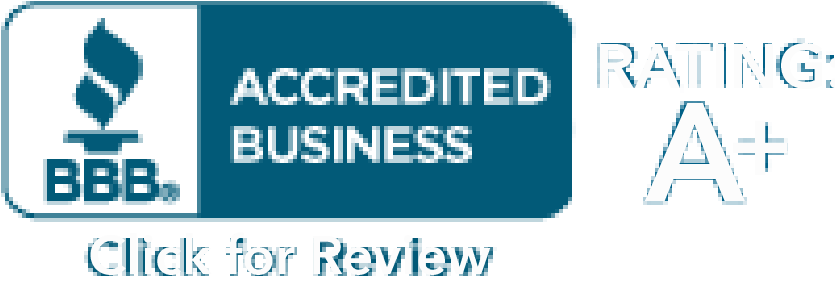Chapter 7 Bankruptcy
Contact UsPensacola Florida Chapter 7 Bankruptcy Lawyers
Also known as “straight bankruptcy,” Chapter 7 is the most simple type of bankruptcy, because it is the process of liquidating property and using the proceeds to repay debts. Often, however, little property is actually liquidated because it is tied up in liens or classified as exempt from liquidation.
When filing under Chapter 7, you are allowed to exempt, or keep, certain property. Whatever property remains is turned over to the court to be sold. If you have few or nonexempt assets, it is likely your debts will be discharged without you having to pay anything.
Although you may file Chapter 7 without the help of an attorney, a good attorney will assist you in filing the proper papers and help you keep as many of your assets as possible, while at the same time helping you to avoid any possible charges of fraud.
A decision to file for bankruptcy should be made only after determining that bankruptcy is the best way to deal with your financial problems. While we cannot explain every aspect of the bankruptcy process, we’ve listed some of the most frequently asked questions
Fill in your contact info and we will call you back ASAP
Frequently Asked Questions about Chapter 7 Bankruptcy
Will I Lose My Possessions?
You will not lose all of your possessions. One of the basic misconceptions about a Chapter 7 bankruptcy is that you lose all of your assets–whatever they may be. There is an important exception. There are certain defined assets called exempt assets. Out of all of your assets you are allowed to keep your exempt assets, the idea being that you need certain basic items in order to make a successful fresh start after bankruptcy.
Exempt assets are defined by law. Both federal and state law provide numerous exemptions which may allow you to keep your home, car, and personal property. It is important to inventory all of your assets so that you can discuss them with your bankruptcy attorney. Quite often, especially in a family situation, all of your assets will be exempt, which means you lose nothing after filing a bankruptcy. If it appears that you may lose some of your assets by filing a chapter 7 bankruptcy, you should consider your options under a chapter 13 debt consolidation proceeding.
What Will Happen To My Debts?
A Chapter 7 discharge is a court order releasing a debtor from all of his or her dischargeable debts and ordering the creditor not to attempt to collect them from the debtor. A debt that is discharged is one that the debtor is released from and does not have to pay. Some debts, however, are not dischargeable under Chapter 7, and some persons are not eligible for a chapter 7 discharge.
How Will Filing Bankruptcy Affect My Credit?
A major concern that most of our clients have is the extent to which their credit will be affected by filing a Chapter 7 bankruptcy. Your credit will be adversely affected by filing a Chapter 7 bankruptcy. There is no question about that. The fact is that your filing will be reflected on your credit report for a period of ten (10) years from the date your petition is filed. That, however, is not the main issue. It is important to recognize that your underlying financial problems are the real cause of your negative credit, not the bankruptcy. Actually, the bankruptcy code can be the first step in reestablishing your credit. As stated, a Chapter 7 will be on your credit report for a period of ten (10) years. However, any negative or bad information currently on your credit report will stay on your credit report for a period of seven (7) years and that time period does not start until you pay off your creditors in full or it is “written off” as a bad debt. As a practical matter, your credit will be affected for a period of at least seven (7) years without doing anything. The reason we say that filing a Chapter 7 bankruptcy may be the first step in reestablishing your credit is that it provides a cut-off, or a beginning point for you to obtain a fresh start.
What Debts Survive Bankruptcy?
All debts of any kind or amount, including out-of-state debts, are dischargeable under Chapter 7 except those listed below. The following types of debts are not dischargeable under Chapter 7:
- Debts for certain taxes, including but not limited to taxes that became due within the last three years.
- If the creditor filed a complaint and if the court so rules, debts for obtaining money, property, services, or credit by means of false pretenses, fraud, or a false financial statement (included here are certain debts for luxury goods or services and for certain cash advances made within 60 days before the case is filed).
- Debts not listed on the debtor’s Chapter 7 papers, unless the creditor knew of the case in time to file a claim.
- If the creditor files a complaint and if the court so rules, debts for fraud, embezzlement or larceny.
- Debts for alimony, maintenance or support, with certain very limited exceptions.
- If the Creditor files a complaint and if the court so rules, debts for intentional or malicious injury to the person or property of another.
- Debts for certain fines or penalties.
- Debts for student loans unless not discharging the debt would impose an undue hardship on the debtor and his or her dependents.
- Debts for death or personal injury caused by the debtor’s operation of a motor vehicle while unlawfully intoxicated.
- Debts that were or could have been listed in a previous bankruptcy case of the debtor for which the debtor did not receive or would have received a discharge.
How long will the proceeding last?
A Chapter 7 case begins with the filing of a petition and ends with the closing of the case by the court. If the debtor does not have any nonexempt assets for the trustee to collect, the case will most likely be closed shortly after the debtor receives his or her discharge, which is usually about four months after the case is filed. If the debtor has nonexempt assets for the trustee to collect, the length of the case will depend on how long it takes the trustee to collect the assets and perform his or her other duties in the case. Most consumer cases with assets last less than six months, but some last considerably longer.
Do Both Husband And Wife Have To File Bankruptcy?
Generally, both husband and wife do not have to file bankruptcy jointly. Both husband and wife should file, however, if one or more substantial dischargeable debts are owed by both spouses. If both spouses are liable for a substantial debt and only one spouse files under Chapter 7, the creditor may later attempt to collect the debt from the non-filing spouse, even if he or she has no income or assets.
How Will Lawsuits Be Affected?
The filing of a bankruptcy prevents any lawsuits from being filed or judgments being entered against you. If you file bankruptcy when there is a lawsuit against you, it can go no further. If a judgment has been entered, its enforcement can go no further, at least not without first getting permission from the bankruptcy court.
If there are potential lawsuits against you, often the bankruptcy court offers a forum where the dispute can be rapidly settled–thus avoiding the time and expense of litigating the matter in state court. If lawsuits or judgments are a threat or a real problem, there may be relief available for you.
Are Employers Notified?
Employers are not usually notified when a Chapter 7 case is filed. However, the trustee in a chapter 7 case may contact an employer seeking information as to the status of the debtor’s wages or salary at the time the case was filed. If there are compelling reasons for not informing an employer in a particular case, the trustee should be so informed. The trustee may be willing to make other arrangements to obtain the necessary information.
Does A Person Lose Any Legal Or Civil Rights?
Filing a Chapter 7 bankruptcy is not a criminal proceeding, and a person does not lose any civil or constitutional rights by filing.
May Employers Discriminate Against Me For Filing Bankruptcy?
It is illegal for either private or governmental employers to discriminate against a person as to employment because that person has filed under Chapter 7. It is also illegal for local, state, or federal governmental units to discriminate against a person as to the granting of licenses, permits, and similar grants because that person has filed under Chapter 7. It is also illegal for governmental student loan or grant unit to deny a student loan or grant solely on the basis of filing.
May Utilities Discriminate Against Me For Filing Bankruptcy?
If, within twenty (20) days after a Chapter 7 case is filed, the debtor furnishes a utility company with a deposit or other security to insure the payment of future utility services, it is illegal for that utility company to refuse to provide future utility services to the debtor, or to otherwise discriminate against the debtor, if its bill for past utility services is discharged in a chapter 7 case.
What If I Want To Pay A Particular Creditor After Bankruptcy?
A debtor may repay as many dischargeable debts as desired after filing under Chapter 7. By repaying one creditor, a debtor does not become legally obligated to repay any other creditor. The only dischargeable debt that a debtor is legally obligated to repay after filing under chapter 7 is one for which the debtor and the creditor have entered into what is called a reaffirmation agreement. If the debtor was not represented by an attorney in negotiating the reaffirmation agreement with the creditor, the reaffirmation agreement must be approved by the court to be valid. If the debtor was represented by an attorney in negotiating the reaffirmation agreement, the attorney must file the agreement and a statement with the court in order for the agreement to be valid. If a dischargeable debt is not covered by a reaffirmation agreement, a debtor is not legally obligated to repay the debt, even if the debtor has made a payment on the debt since filing under chapter 7, or has agreed in writing to repay the debt, or has waived the discharge of the debt.
How Will Bankruptcy Affect My Co-Signers?
A Chapter 7 discharge releases only the debtor. The liability of any other party on a debt is not affected by a chapter 7 discharge. A person who wants to protect co-signers should consider his or her options under a chapter 13 debt consolidation.
What About My Moral Obligation To Pay My Debts?
The decision whether or not to seek bankruptcy relief is a difficult one. One should remember that bankruptcy is a right guaranteed by law and provided for in the Constitution of the United States of America. An individual should consider it in terms of the hardship it may avoid for his or her family. It may be that it is the only way to provide them food, clothing and shelter in hard times. One must often decide that his or her obligation to provide for children or loved ones outweighs the obligation to pay his or her creditors.
Chapter 13 debt consolidation provides yet another option. In some cases, a debt consolidation proceeding may provide a viable mechanism for repaying creditors as well as solving other problems.
Also, you should remember that filing bankruptcy does not prevent you from voluntarily paying your debts at a later time if you are able. The bankruptcy discharge only prohibits your creditors from forcing you to repay debts.
Can I Include Taxes?
Generally, taxes are not avoidable when you go through a straight chapter 7 bankruptcy. This is true whether it be income tax, employer withholding tax, or social security.
There are some limited technical exceptions. For example:
If, at the time of filing, you have unpaid, unsecured income or gross receipts taxes for a tax year where taxes were due but unpaid and a return was due and filed more than three years ago; or you filed your return late, but over two years ago, then under these restricted circumstances you may not have to pay these taxes since they may be dischargeable in bankruptcy. There are other tax situations too complicated to explore in this presentation but which should be considered in the filing of a bankruptcy.
Can I Include Student Loans?
Generally, student loan obligations are not dischargeable in a chapter 7 bankruptcy. This is true unless repayment would cause the debtor undue hardship. Also, if your school closed prior to your graduating or receiving a degree, there may be “special” relief available. Your student loan obligations should be closely reviewed with your bankruptcy attorney.
Pensacola Office
1100 North Palafox St.
Pensacola, FL 32501
850-432-9110
Google Map
Fort Walton Office
151 South Mary Esther Cutoff, Ste 103
Fort Walton Beach, FL 32569
850-863-9110
Google Map
Panama City Office
2714 West 15th Street
Panama City, FL 32401
850-913-9110
Google Map
Crestview Office
1501 S. Ferdon Blvd.
Crestview, FL 32536
850-409-3350
Google Map

We serve clients throughout the Florida Panhandle, Gulf Coast and Northwest Florida, including Pensacola, Cantonment, Milton, Century, Pace, Gulf Breeze, Navarre, Mary Esther, Fort Walton, Destin, Niceville, Crestview, Defuniak Springs, Santa Rosa Beach, Seaside, Marianna, Panama City, Port St. Joe, Lynn Haven, Wewahitchka and other communities in Escambia, Santa Rosa, Okaloosa, Walton, Bay, Calhoun, Gulf, Holmes, Jackson, Washington, Liberty and Franklin counties.

